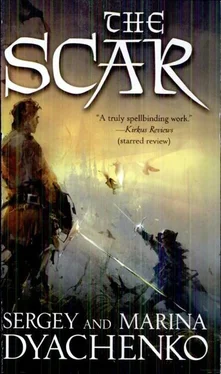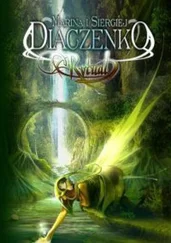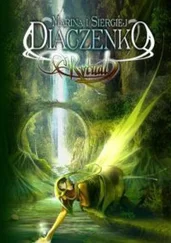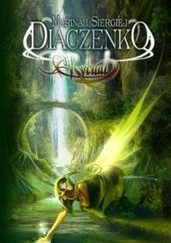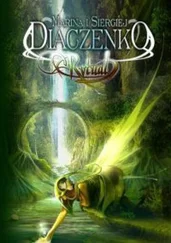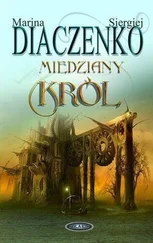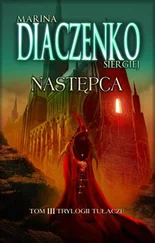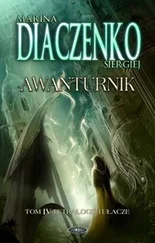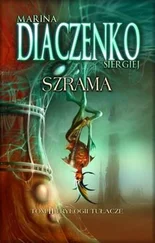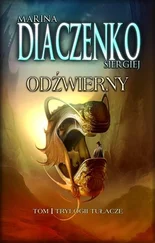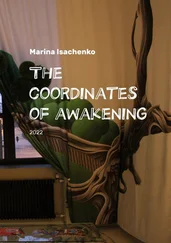Fagirra was unfazed. With the corners of his pale mouth slightly raised, he uttered in a low voice, “You aggravate your guilt by slandering Lash.”
It was agonizingly hard for Toria to start speaking again. “You have not brought one piece of hard evidence of the guilt of my father. Everything you’ve said means nothing. You have neither evidence, nor … witnesses.”
She spoke ever softer and softer. Trying to make out her words, the crowd hushed, and only the scraping of soles along the floor and the breath of hundreds of people could be heard in the sultry air of the hall.
Fagirra smiled slightly. “There is a witness.”
Toria wanted to say something. She jerked her head up, ready to vent all her wrath and disdain on Fagirra, but then she stopped short and said nothing. Egert felt how all her strength and all her will dissolved, receding like water through open fingers. Hope, which had lingered on until this moment and which had helped her to struggle, shimmered one last time and then died. In the growing silence Toria turned her head and met Egert’s eyes.
He sat alone on an infinitely long bench, hunched over, doomed to betray. A wistful question stood in Toria’s eyes, but Egert could not answer it. They looked at each other for several seconds, and he felt how pity, despair, and contempt for his weakness struggled in her soul, but then these feeling gave way to a deathly exhaustion. Toria’s shoulders slowly slumped and, dragging her feet, she returned to the dock without a single word.
The silence in the hall lasted for a few more seconds; then a roaring quickly surged, flying up toward the ceiling. The clerk was about to pound on his table, but with a scarcely noticeable gesture Fagirra stopped him, and the hall, unrepressed, was free to express its astonishment, its indignation and its rage toward the sorceress who had capitulated in the face of overwhelming evidence.
Finally, Fagirra snapped his fingers, the clerk banged away at the tabletop, and the guards slammed the ends of their pikes on the floor. The crowd quieted, though not immediately. The magistrate said something Egert could not hear. The clerk loudly repeated his words, but these words did not reach Egert, who had settled into a dreary stupor, until a guard standing behind him firmly seized him by the elbow and lifted him up off the bench.
He looked around like a frightened dog. Fagirra watched him from under his hood, and in his eyes stood a benevolent and at the same time imperious command.
Egert did not remember how he got to the stand.
There, beyond the walls, the sun was shining, and two of its rays fell in through the two tall grilled windows. In their corner the students, who had grown despondent, brightened. Egert heard his name repeated many times: it was repeated excitedly, loudly, and softly; it was repeated indifferently, with surprise, with joy and hope. Those who had shared room and board with Egert for many days, those who had sat next to him in lectures and had drunk wine with him in merry taverns, those who knew of the planned wedding were justified in expecting from him words appropriate to an honest man.
The executioner sighed again, trying to wipe a dark spot from his bag; the pliers clinked softly and Egert felt the first jolt of eternal, animal fear.
Toria was looking to the side, as before slumped over, harassed and passionless.
“Here is the prosecutor’s main witness,” said Fagirra pompously. “This man’s name is Egert Soll. Lately he has been received in the dean’s study and he has been close to the dean’s daughter, which is why his testimony is so important to us. On that fateful night he was present during the accursed sorceries. We are listening to you, Soll.”
A deadly, unnatural silence spread over the entire world. The two windows watched Egert, like two empty, perfectly clear eyes. He remained silent. Dust motes danced in the columns of light, and Toria, frozen on her own bench, suddenly raised her head.
It is likely that his pain and grief had been communicated to her, but in that very second he suddenly sensed how, perceiving the horror and despair of her beloved, she searched for his gaze.
He was silent, unable to force out a sound.
Fagirra sneered. “All right. I will ask the questions and you will answer. Is it true that your name is Egert Soll?”
“Yes,” his lips spoke instinctively. A sigh passed through the crowd.
“Is it true that you came here from the town of Kavarren about a year ago?”
Egert saw the towers and weathervanes reflected in the water of the spring Kava; the pavement bathed by rain; a pony under an elegant, child’s saddle; shutters closing with a bang; and his laughing mother with her palm shading her eyes.
“Yes,” he replied distantly.
“Good. Is it true that all this time you lived at the university, keeping close company with the dean and his daughter, and that she almost became your wife?”
He finally succumbed to the silent entreaty of Toria and decided to look at her.
She sat, leaning forward and not taking her eyes off him. Egert felt how she relaxed slightly as soon as she caught his gaze. Her face warmed and her gnawed lips tried to form a smile. She was happy to see him, even now, on the brink of betrayal, and she rushed to pour into him all her frantic, almost maternal tenderness, unextinguished by torture, for surely they were also torturing him, they would continue to torture him, perhaps more roughly and painfully, in front of the whole city, in front of the woman he loved; she understood how it was with him, what ailed him now and what would happen later: she understood everything.
It would have been easier for him to survive disdain than compassion. He turned his troubled gaze, full of hate, to Fagirra.
“Yes!”
At that moment something shivered in Toria’s eyes. Egert returned her gaze, and his hair stood up on his head because he too understood.
His trembling hand lay on his scar. On one day only, and only one chance. Please do not let me err in answering.
“Is it true that on the eve of the Plague you were in the dean’s study, and that you saw what happened there?”
The path must reach its bitter end.
“Yes,” he said for the fourth time.
The executioner scratched his nose. He was bored.
Fagirra smiled victoriously. “Is it true that the magical acts of the dean and his daughter called forth the Plague upon the city?”
The steel blade had ripped through his cheek, and the curse had broken his life in two. He had been self-assured on that morning; the spring had broken out cold and lingering, and dewdrops had slithered down the tree trunks, as if weeping for someone. He had not shut his eyes when the Wanderer’s sword sank into his face; there was pain, but there was no fear even then.
He felt the scar on his cheek come to life; it throbbed, full of fire. Still pressing his palm to his cheek, he looked down into the hall and met the gaze of perfectly clear eyes without eyelashes.
The Wanderer stood by a wall in the crowd, but seperate from all. Among the crowd of curious, overwrought, scowling, and tense faces, his long face, notched with vertical wrinkles, seemed as detached as a lock hanging off a door. When that which is foremost in your soul becomes last. When five questions are asked and you answer yes.
My fate steers me along a precisely designed line.
He shivered. At that very moment Toria also recognized the Wanderer. Without turning around, Egert saw how her swollen lips at first tentatively, then more boldly and joyfully, slipped into a smile.
Smiling, she would go to a horrible death. For it appeared that pardon for Egert sounded the death knell for Toria. She knew this and still smiled because in her life there had been the eternally green tree over the tomb of the First Prophet and those nights spent by the light of the fireplace and his promise to shed the curse for her sake.
Читать дальше
